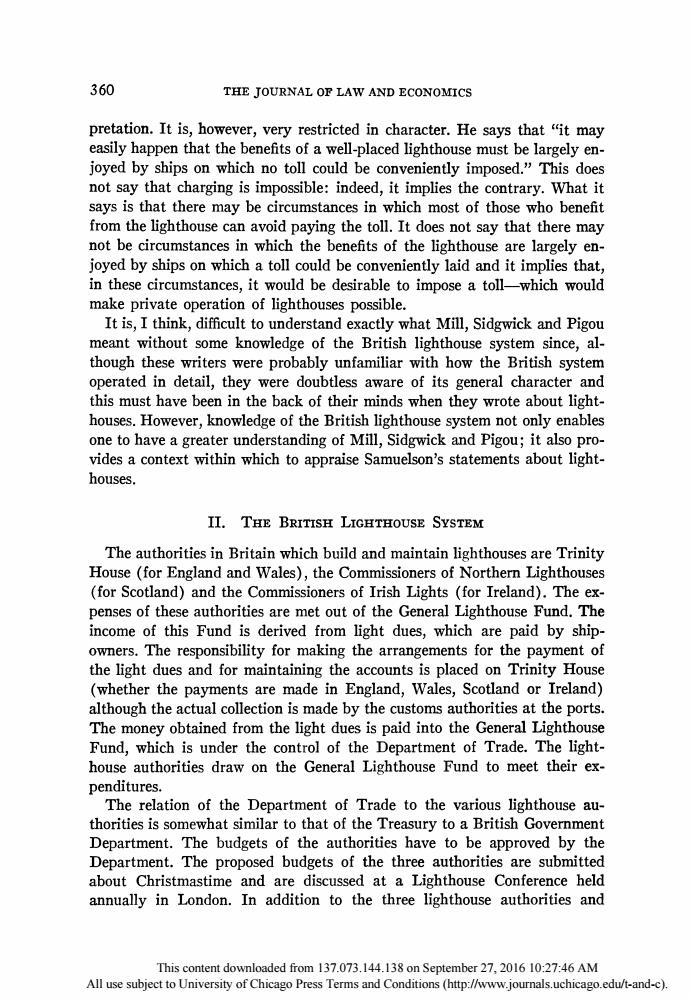正在加载图片...

360 THE JOURNAL OF LAW AND ECONOMICS pretation.It is,however,very restricted in character.He says that "it may easily happen that the benefits of a well-placed lighthouse must be largely en joyed by shins on which no toll c ould be imposed,.”This doe not say that charging is impossible:indeed,it implies the contrary.What it says is that there may be circumstances in which most of those who benefit from the lighthouse can avoid paying the toll.It does not say that there may not be circumstances in which the benefits of the lighthouse are largely en joyed by ships on which a toll could be conveniently laid and it implies that, in these circumstances,it would be desirable to impose a toll-which would make private operation of lighthou possible It is,I think,difficult to understand exactly what Mill,Sidgwick and Pigou meant without some knowledge of the British lighthouse system since,al- though these writers were probably unfamiliar with how the British system p erated in detail,they were doubtless aware of its general character and this must have been in the back of their minds when they wrote about light- houses.However,knowledge of the British lighthouse system not only enables one to have a gre eater understanding of Mill,Sidgwick and Pigou;it also pro vides a context within which to appraise Samuelson's statements about light. houses. IL THE BRITISH LIGHTHOUSE SVSTEM The authorities in Britain which build and maintain lighthouses are Trinity House (for England and Wales),the Commissioners of Northern Lighthouses (for scotland)and the commissioners of irish lights (for ireland).The ex- penses of thes e authorities are met out of the General Lightho ouse Fund.The income of this Fund is derived from light dues,which are paid by ship- owners.The responsibility for making the arrangements for the payment of the light dues and for maintaining the accounts is placed on Trinity House (whether the payments are made in England,Wales,Scotland or Ireland) although the actual collection is made by the customs authorities at the ports. The money obtained from the light dues is paid into the General Lighthouse Fund,which is under the ntrol of the D partmen of Trade.The light- house authorities draw on the General Lighthouse Fund to meet their ex- penditures. The relation of the Department of Trade to the various lighthouse au- thorities is somewhat similar to that o of the Tre sury to a British Gov Department.The budgets of the authorities have to be approved by the Department.The proposed budgets of the three authorities are submitted about Christmastime and are discussed at a Lighthouse Conference held annually in London.In addition to the three lighthouse authorities and This wnloaded from 137073 144 138 on Se ember27201610-27-46A All use subject to University of Chicago Press Terms and Conditions(http://www.journals.uchicago.edu/t-and-c).This content downloaded from 137.073.144.138 on September 27, 2016 10:27:46 AM All use subject to University of Chicago Press Terms and Conditions (http://www.journals.uchicago.edu/t-and-c)